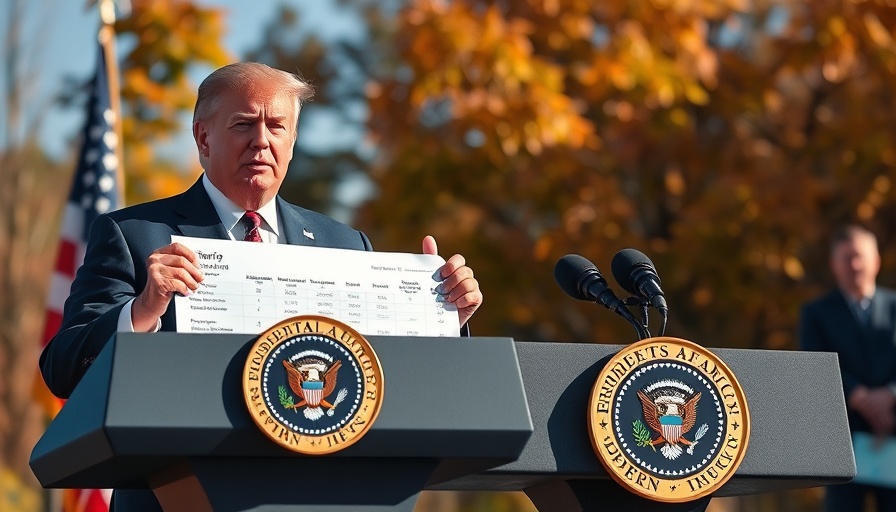
Understanding the Trump Tariffs: A Shock to Investors
The recent announcement by former President Trump regarding hefty tariffs has sent shockwaves through global markets, stirring uncertainty among investors. With stocks sliding swiftly following the announcement, experts are weighing in on the implications for a variety of investment strategies. Tariffs, especially on imports, not only affect consumer prices but also the broader economic landscape. They can lead to inflationary pressures and influence supply chain dynamics, causing tremors across sectors.
Market Reaction: Immediate Impacts on Stocks
On the day of the announcement, indices like the Nasdaq fell sharply, showcasing the market's swift reaction to the potential economic ripple effects. Investors had to grapple with a question of timing: should they pull back or hold firm in the turbulent waters? Such sudden changes highlight the importance of having a well-thought-out investment strategy, as knee-jerk reactions can often lead to losses.
Investment Strategies in Light of Tariff Changes
During times of market volatility spurred by unpredictable factors such as tariffs, investors must pivot quickly. Diversification strategies become crucial; spreading investments across various asset classes—such as stocks, bonds, and real estate—mitigates risk. For those focused on stock market trends, sectors likely to be affected by tariffs, like manufacturing or imports, may require an urgent reassessment. Exploring ETF investing or mutual funds with exposure to international markets can also be viable strategies to hedge against domestic risks.
The Long-Term Outlook: What Investors Can Expect
With the announcement raising eyebrows, analysts predict longer-term shifts in investment trends. Future predictions suggest that if tariffs become a regular occurrence, we may see a reshaping of global supply chains, prompting investors to consider sectors less reliant on international relations. In this environment, sectors such as renewable energy and technology could emerge as attractive options; both are poised to thrive as economies pivot toward sustainability.
Broader Implications for the Economy
Understanding the broader economic context is essential when navigating challenges like trade tariffs. Economists suggest that while tariffs aim to bolster domestic manufacturing, they risk escalating trade wars that could hinder growth. Investors need to keep an eye on inflation indicators and interest rates, as these elements will directly impact investment options.
Tips for Managing Investment Risk
Effective risk management is imperative during uncertain times. Investors should look into techniques such as dollar-cost averaging, which involves consistently investing a fixed amount regardless of market conditions. This strategy can reduce the impact of volatility over time and foster a more disciplined investment approach. Additionally, considering other asset classes—like real estate or commodities—can provide a safety net, particularly during downturns.
Final Thoughts: Staying Composed in a Volatile Market
The recent tariff announcements serve as a reminder of how swiftly market dynamics can change. As the situation develops, it’s essential for investors to remain informed and reassess their strategies frequently. By understanding the potential impacts of such policies, investors can better position themselves to navigate through market uncertainties smoothly.
Whether you are considering stocks, bonds, or real estate, staying educated on economic indicators and investment strategies is vital to maintaining a balanced portfolio.
 Add Row
Add Row  Add
Add 



Write A Comment